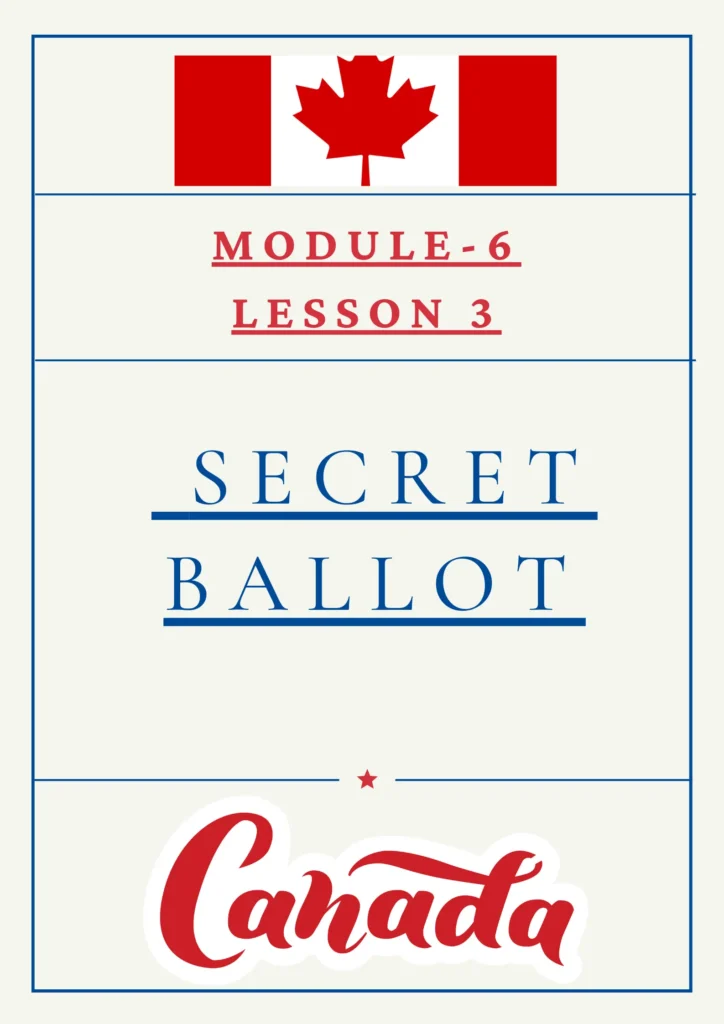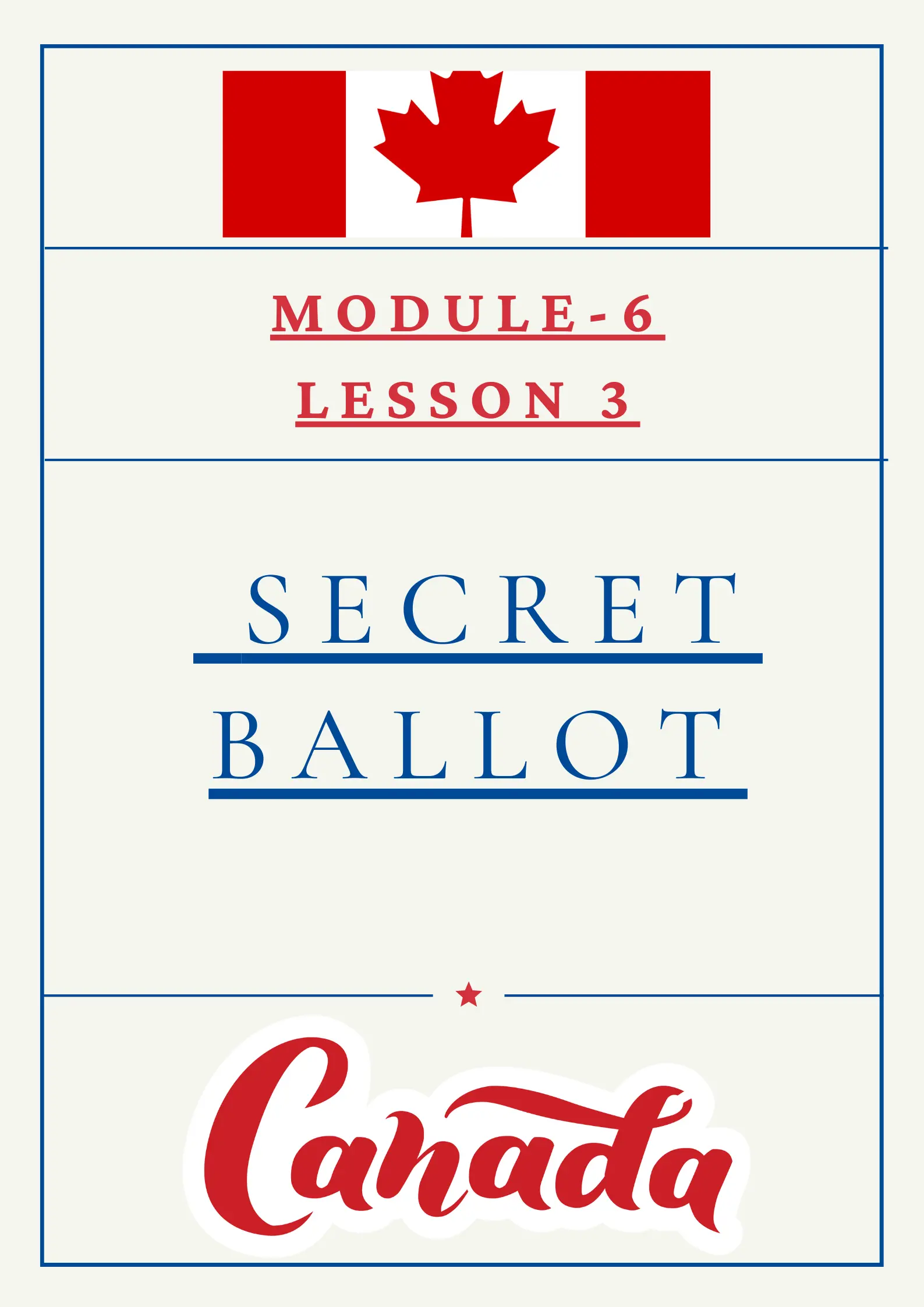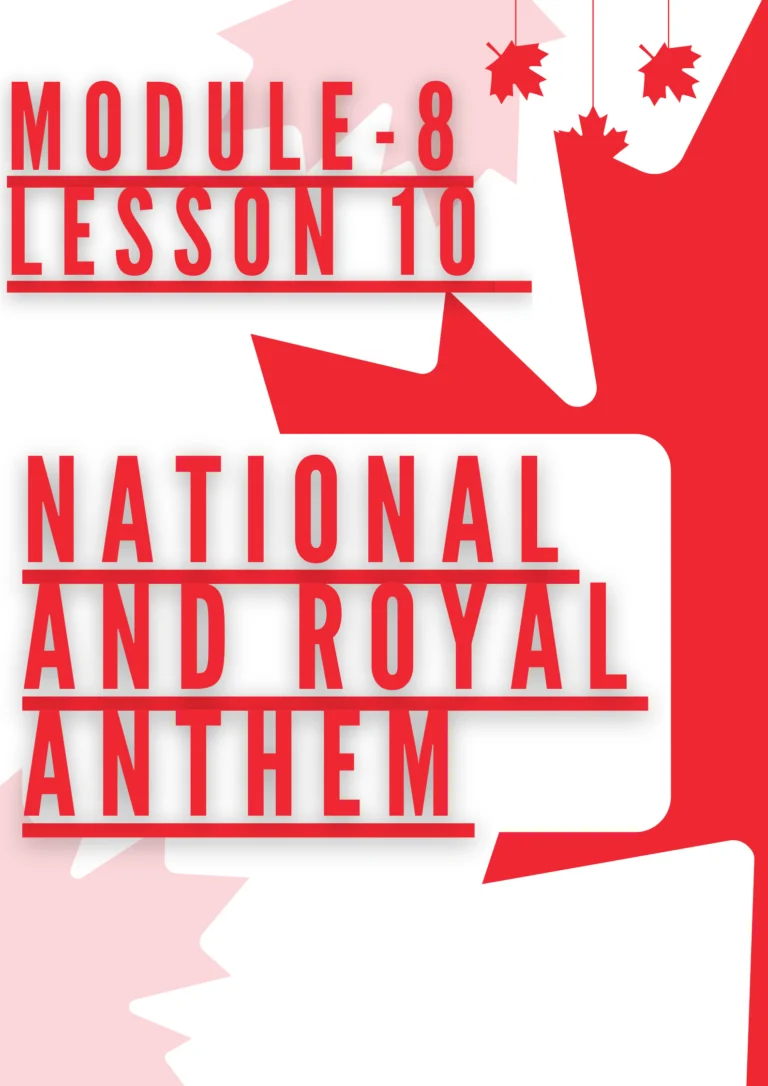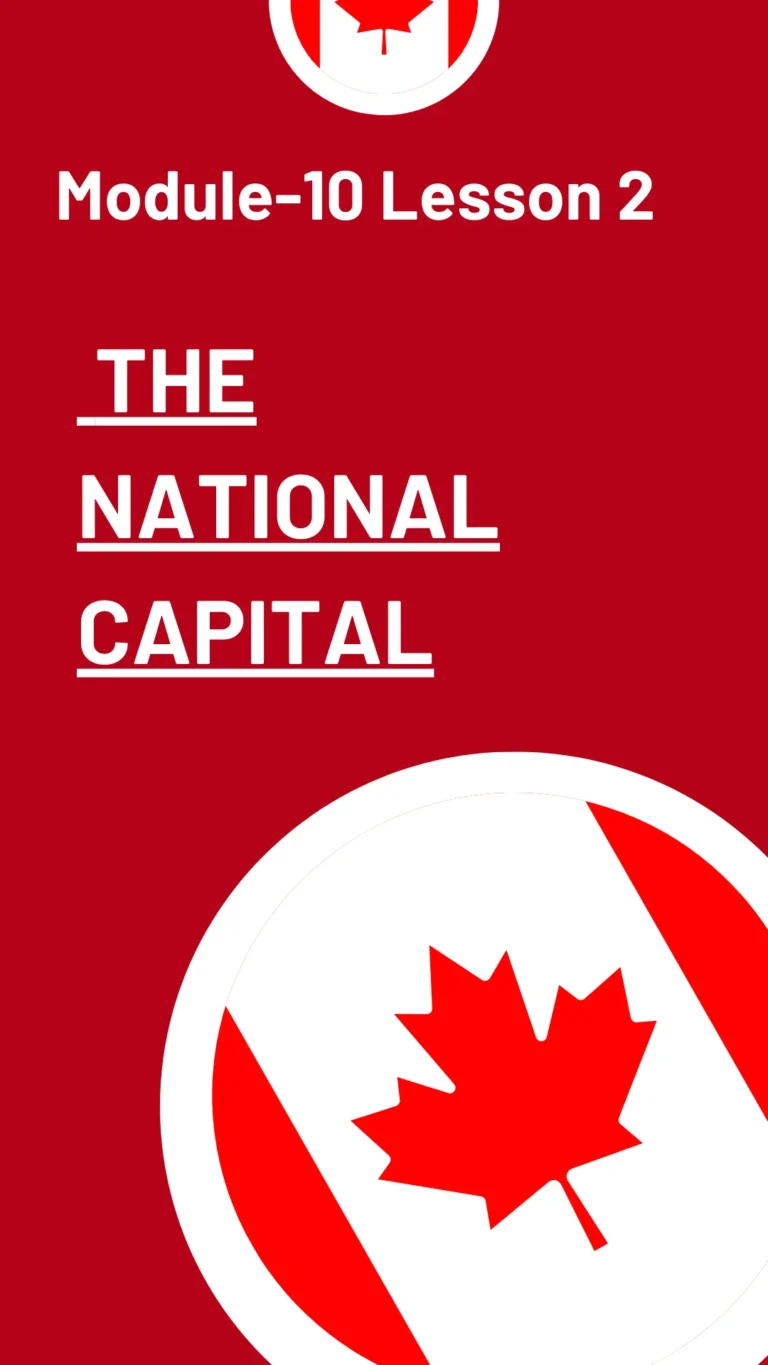Module-6 Lesson 3 Secret Ballot
Secret ballots are a crucial part of democratic voting. They provide citizens with an area where they can express themselves without being afraid of repercussions. The adoption of the Secret Ballot has been a key factor in the fairness and integrity of Canada’s electoral process. This essay examines the significance and impact of secret ballots in Canadian elections. It also explores how democratic practices shaped Canada’s political landscape.
History of the Context
Secret ballots, or the Australian ballot, as they are also called, have their roots in the nineteenth century. Open voting was the norm before its introduction. This exposed voters to possible coercion and intimidation. Secret ballots were introduced to protect the integrity of elections and to empower voters to make their own decisions .
Canada adopted the secret ballot in the early and late 20th century, following the trend of global democracy. It was a gradual transition, as provinces adopted different variations. The secret ballot was a keystone in Canadian democracy by the beginning of the 20th century. It ensured the integrity of voting.
The Secret Ballot and its Significance
Secret ballots are of great importance in all democratic societies. This includes Canada. The adoption of the secret ballot has changed Canada’s electoral landscape and made it more transparent. The importance of secret voting in Canada is highlighted by following key factors:
Freedom of Voice and Independence: Secret ballots allows voters to make their own decisions without being influenced by others. Citizen can freely express themselves without being influenced by others. They are able to vote in secret and not be influenced. The independence of the vote reinforces democracy’s principle that every vote is a reflection of the individual’s values and beliefs.
Equal Voting: Secret ballots promote equality during the voting process. Every voter is afforded the same privacy and protection, regardless of their social, political, or economic standing. All citizens are given the same opportunity, regardless of their backgrounds, to take part in democracy.
Preventing Coercion and Intimidation. By casting their ballots in secret, voters are protected from outside pressures and the outcome of an election is more accurate.
Enhanced Voter Confidence Secrecy in voting increases voter confidence. Citizens are more inclined to vote actively if they know that their ballots are secure and private. This contributes to an engaged and robust electorate. In turn, this strengthens both the legitimacy of the elected representatives as well as the democratic system.
Deterring Electoral Fraud: Secret ballots are a good deterrent. The ability to manipulate, buy, or bribe votes is greatly reduced when individual ballots are hidden from the public. It increases the credibility and fairness of the voting process.
Influence on political culture:
Adoption of secret ballots has profoundly impacted the Canadian political culture. The secret ballot has helped to create a democratic system that is more transparent, inclusive and participatory. The impact of secret voting on the political culture can be seen in several ways.
Encourage Informed Voting Secret ballots encourage citizens to vote with informed decisions. The privacy of this method encourages voters to do more research on candidates, parties, platforms and policies, resulting in a better-informed electorate.
Promoting Civic Responsibility: Secret ballots foster a civic sense among citizens. The secret ballot encourages citizens to participate in democratic processes, to attend debates and to contribute to the public discourse.
Building Trust in Democracy Secret ballots are a key element in building trust in democracy. Citizens who believe their ballots are confidential and secure are more inclined to accept the results of an election, continue voting in subsequent elections and trust them.
Enhancing diversity and inclusion: Secret ballots contribute to the diversity and inclusiveness of participation in politics. When individuals from diverse backgrounds are assured that their vote will remain confidential, they’re more inclined to take part in politics. This includes historically marginalized people. It contributes to an inclusive and representative political environment.
The Challenges of Evolving Concerns:
The secret ballot is helping to strengthen Canada’s democracy, but it has its challenges.
Challenges Technological: With the advent of online voting platforms and electronic voting systems, questions have been raised about whether the principles of secret ballots can be preserved. Assuring security, privacy and integrity in the digital world poses challenges unique to the realm.
Concerns about Voter Turnout: The secret ballot, despite its positive effects, hasn’t eliminated voter turnout concerns. There are efforts underway to remove barriers to voting, improve civic education and find innovative ways to increase voter participation without violating the principle of the secret ballot.
Alternative Methods for Voting: The discussion of alternative methods such as proportional voting, ranked choice voting, or other voting systems challenges the traditional idea of a secret ballot. In evaluating these alternative methods, it is important to strike a balance between the preservation of secret voting and the exploration of innovative democratic representation.

Conclusion:
Secret ballots are a cornerstone of Canadian democracy. They preserve the integrity of voting and empower citizens to vote freely and independently. The secret ballot’s evolution in history, its impact on the political culture and changing considerations highlight how important it is to shaping Canada’s democratic landscape. Secret ballots remain a symbol of democracy as Canada navigates the 21st Century. They ensure that Canadians’ voices are protected and respected in their journey to self-governance.





